Discover Million Bazillion
Million Bazillion

Million Bazillion
Author: Marketplace
Subscribed: 2,286Played: 57,397Subscribe
Share
© Copyright 2026 Minnesota Public Radio
Description
Million Bazillion is a podcast from Marketplace that inspires families to talk about money. Described as “a godsend for anyone who knows a little kid with big questions about money,” by The New York Times, the podcast tackles questions from: "What is cryptocurrency?" to “How do I save money?” and “How does inflation work?” Hosts Ryan Perez and Bridget Bodnar take listeners on an awesome adventure to answer the awkward, complex and sometimes surprising money questions from real kids.
Million Bazillion is made possible in part by The Ranzetta Family Charitable Fund and Next Gen Personal Finance, supporting Marketplace’s work to make younger audiences smarter about the economy. This podcast is presented by Greenlight, the debit card and investing app for kids and teens.
89 Episodes
Reverse
It’s karaoke night for Bridget and Ryan, but something stops them from belting their favorite tunes on their podcast: the law. It’s the perfect setup to answer a question from Garrett, who wants to know about copyright, trademarks, and royalties. We all know people deserve to be paid for their creative ideas. But how does it actually work? Together, we’ll find out how creators protect their ideas and make money from them. Plus, will Ryan be able to turn what he’s learned into a lucrative musical career?If your family is interested in learning even more about today’s question, check out our website. We’ve got conversation starters and a tip sheet!This episode is sponsored by Greenlight. Sign up for Greenlight today at greenlight.com/million.
It’s Skimbleshanks’ birthday bash and Bridget and Ryan head to the two-dollar general store for party supplies. When they get back, they tackle Harper’s question about why $2 bills exist if nobody uses them. With a little help from two ghostly guests from history they discover why this rare bill still matters. If your family is interested in learning even more about today’s question, check out our website. We’ve got conversation starters and a tip sheet!This episode is sponsored by Greenlight. Sign up for Greenlight today at greenlight.com/million.
It’s Halloween, and Bridget and Ryan are trying to answer a question about the national debt while preparing for their town’s giant Halloween extravaganza. The town has taken on debt to make things extra spooky this year and things are starting to get a little out of control! Can Bridget and Ryan help the town navigate their monster debt?(Grownups: This is episode does contain monsters but no jump scares! You know your kid listeners best, so exercise caution if Halloween is more tricky than treat for them!)If your family is interested in learning even more about today’s question, check out our website. We’ve got conversation starters and a tip sheet!This episode is sponsored by Greenlight. Sign up for Greenlight today at greenlight.com/million.
“Marketplace” host Kai Ryssdal needs a bit of help doing his classic “The Numbers” stock market segment so Ryan jumps in to save the day. The only problem is, he has no idea what any of it means. Ryan and Bridget head to Wall Street to learn about the stock market and answer Aditya’s question: how do stocks make money? Things get competitive as the duo try investing in stocks for themselves and see who can make more money. If your family is interested in learning even more about today’s question, check out our website. We’ve got conversation starters and a tip sheet!This episode is sponsored by Greenlight. Sign up for Greenlight today at greenlight.com/million.
Today, we’re resharing an important episode from our archive! There’s a major storm brewing, and Ryan and Bridget are stuck inside. It’s the perfect opportunity to answer a question they got from Archer in Los Angeles: What is insurance? Archer’s dad is an insurance agent, and Archer wants to know what his dad does all day. Turns out insurance is uh, complicated. From home insurance to health insurance, we’re going to figure out what it is and why people use it. Plus, we have a catchy song to help you remember the difference between some confusing insurance jargon.If your family is interested in learning even more about today’s question, check out our website. We’ve got conversation starters and a tip sheet!This episode is sponsored by Greenlight. Sign up for Greenlight today at greenlight.com/million.
When Esmé noticed her dad suddenly staying home from work, she had questions! Her dad is one of the hundreds of thousands of workers sent home because of the government shutdown. But what is a government shutdown anyway? In today’s special bonus episode, we explain what’s going.We’re working on future seasons and would love to hear your kid’s money questions! Record your Million Bazillionaire and send the audio using this online form and we just might include your kid in an upcoming episode!This episode is sponsored by Greenlight. Sign up for Greenlight today at greenlight.com/million.
Bridget and Ryan are at the Podcast Hosts for Youths Sleepaway Camp, but Ryan just can’t fall asleep. That’s when they meet Dougie Pickles, host of the Cozy Critters sleepy time podcast, with a surprising bedtime trick. Together, they unpack the world where animals and money collide, learn what bull and bear markets are, and introduce us to a fishy little entrepreneur, all while soothing Ryan to sleep. Plus, what do you think is more expensive to feed, a tiger or an elephant?If your family is interested in learning even more about today’s question, check out our website. We’ve got conversation starters and a tip sheet!This episode is sponsored by Greenlight. Sign up for Greenlight today at greenlight.com/million.
You had lots of travel related money questions! So, Bridget and Ryan are on a money mission. While racing through the airport on their way to the San Fran Fin Lit Pod Con, they get to the bottom of why stuff costs more at airports than at regular stores, how currency exchange works and where our money actually comes from. How does it travel from the U.S. Mint to our wallets? Cue the spy music! If your family is interested in learning even more about today’s question, check out our website. We’ve got conversation starters and a tip sheet!This episode is sponsored by Greenlight. Sign up for Greenlight today at greenlight.com/million.
Today, we’re talking about bubbles. Not the kind you play with. The kind that happen in the economy! Bridget and Ryan take a trip down memory lane to answer Jocelin’s question about what caused the 2008 housing bubble. With help from Bridget’s unforgettable treehouse bubble tale, we’ll learn what can happen when prices rise too high, too fast and the bubble finally pops! Plus, why it’s so tricky to spot a bubble before it bursts.If your family is interested in learning even more about today’s question, check out our website. We’ve got conversation starters and a tip sheet!This episode is sponsored by Greenlight. Sign up for Greenlight today at greenlight.com/million.
It's the start of a whole new season and Bridget and Ryan have a great question from listener, Dena: What is a chain restaurant? Some chain restaurants work a little differently than other chains — they're "franchises" and individual people can open a location of their own! To answer Dena’s question, Bridget and Ryan try their hand at opening their own location of the incredibly popular and beloved chain, the International House of Clams. Together, they’ll learn how the chain restaurant business works and what makes it different from starting a restaurant from scratch. Plus, keep an ear out for cameos from some of your favorite Million Bazillion characters!If your family is interested in learning even more about today’s question, check out our website. We’ve got conversation starters and a tip sheet! This episode is sponsored by Greenlight. Sign up for Greenlight today at greenlight.com/million.
Hey Million Bazillionaires, are you ready for a new season of “Million Bazillion”?Bridget and Ryan are back to answer even more of your money questions. This season, we’ll learn all about the business behind your favorite chain restaurants, take a flight to find out why airport prices are sky-high and pop into the world of bubbles, not the ones you blow with soap, but the kind that burst in the economy! Plus, we’re cracking the mystery behind $2 bills: why do they exist if we hardly use them?New episodes drop every Tuesday, starting September 16th! Subscribe wherever you get your podcasts. And, if you want even more Million Bazillion in your life, make sure you’re subscribed to our newsletter for bonus episode content and tip sheets to keep the money learning going.In the meantime, check out our trailer above and catch up on any episodes you might’ve missed.This episode is sponsored by Greenlight. Sign up for Greenlight today at greenlight.com/million.
Bridget and Ryan get swept up in a cyberpunk adventure as they try to answer Cooper’s question about how online data thefts can lead to real world consequences for your bank account. With the help of longtime friend of the program, Scam Slammer Host Brenda Hammer, the duo travel inside the internet to follow the trail of our digital bread crumbs, and see how advertisers and fraudsters get to know more about us than we might think.
Bridget and Ryan get a question from listener Deji - who wants to know, how much debt is too much debt? Before they can answer, the pair run into Ghost Pirate Blackbeard, who has the same question! Together, they learn more about debt, and what everyone, even a ghost pirate, needs to know before borrowing money. If your family is interested in learning more about the questions we answered in this episode, check out our website. We’ve got discussion questions and tips!This episode is sponsored by Greenlight. Sign up for Greenlight today at greenlight.com/million.
Listener Cecilia wrote in to ask: “Why does organic food cost more than non organic food?” And she's right! Certified organic foods do usually cost more than other options. Bridget and Ryan dive into the question with the help of Stephanie Hughes, Marketplace's reporter on the organic farming beat. Ryan's inspired to try his own hand at organic farming ... but will his crops be able to survive an attack of horn worms, a stampede of chickens and a dustbowl to turn a profit at the farmer’s market?After you listen to this episode, be sure to check out our website. We’ve got conversation starters and tips!This episode is sponsored by Greenlight. Sign up for Greenlight today at greenlight.com/million.
Being a CEO is a big job and 9-year-old Shreen is wondering how to become one! On today’s episode, Bridget and Ryan learn about the different paths people take to be the boss and what it really means to lead a company. (Hint: its not just about meetings and fancy suits). And, guess what? Even CEOs have a boss sometimes, too! If your family is interested in learning more about the questions we answered in this episode, check out our website. We’ve got discussion questions and tips!This episode is sponsored by Greenlight. Sign up for Greenlight today at greenlight.com/million.
Bridget and Ryan hit rewind and break out an old-school cassette tape to answer your money questions. You wanted to know: how ATMs work, why the penny’s called the penny and how airlines set ticket prices? So we’re on the case to bring you the answers with an analog twist! If your family is interested in learning more about the questions we answered in this episode, check out our website. We’ve got discussion questions and tips!This episode is sponsored by Greenlight. Sign up for Greenlight today at greenlight.com/million.
“Million Bazillion” listener Alistair wants to know how professional athletes get paid. Bridget and Ryan prepare for the semi-annual Public Radio Foosball Tournament, but their star player is drafted to the opposing team. The hosts have to scramble to assemble players for their dream team in time for the big tournament. In this episode, they learn about labor unions, player trades and statistical analysis strategies used in the movie “Moneyball.”If your family is interested in learning more about the questions we answered in this episode, check out our website. We’ve got discussion questions and tips!This episode is sponsored by Greenlight. Sign up for Greenlight today at greenlight.com/million.
Bridget convinces Ryan to launch a new side business, solving money problems. Today’s problem - a local fifth-grader is facing competition with her slime business from a rival school. Could a tariff help solve her problem? With the help of a not-so-spooky-ghost, they’ll learn what tariffs are, and why they make the price of things go up, and how tariffs can lead to…a trade war.If your family is interested in learning more about the questions we answered in this episode, check out our website. We’ve got discussion questions and tips!This episode is sponsored by Greenlight. Sign up for Greenlight today at greenlight.com/million.
It’s a new season of “Million Bazillion!” In this episode, Ryan and Bridget dive into the world of lotteries after listener Oskar asked how they work. With the help of a talking stat(istics) cat, they learn just how tricky it is to win big. But like many lottery hopefuls, the pair still buys a ticket with a plan they think will help them beat the odds. Will their idea work? Listen to find out! If your family is interested in learning more about the questions we answered in this episode, check out our website. We’ve got discussion questions and tips!This episode is sponsored by Greenlight. Sign up for Greenlight today at greenlight.com/million.
Hello, Million Bazillionaires! In the new season of Million Bazillion, Ryan and Bridget head out on even bigger adventures to answer some of the best money questions we’ve ever received:From the mystery behind the lottery, to explaining tariffs, and how athletes get paid, the ins and outs of ATMs and how to keep your money info safe online, and why organic food costs more than non-organic food. But the fun doesn’t end there. When you’re done listening to each episode, check out our newsletter for bonus content and cool questions to spark conversations between kids and grownups. New episodes drop every Tuesday starting June 3! Subscribe wherever you get your podcasts. In the meantime, check out our trailer above and catch up on any episodes you might’ve missed.


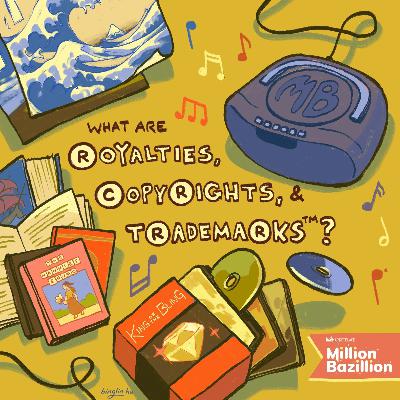
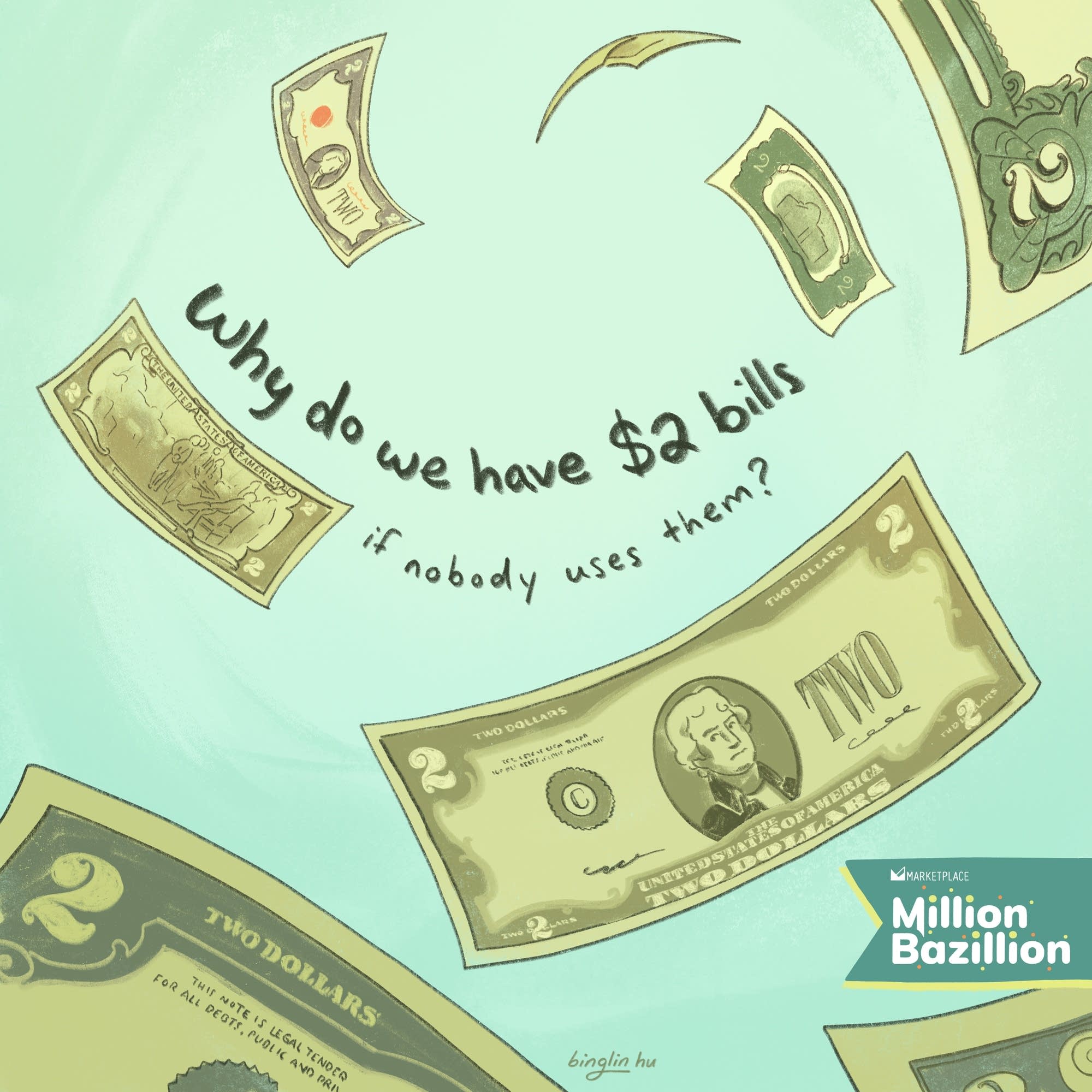
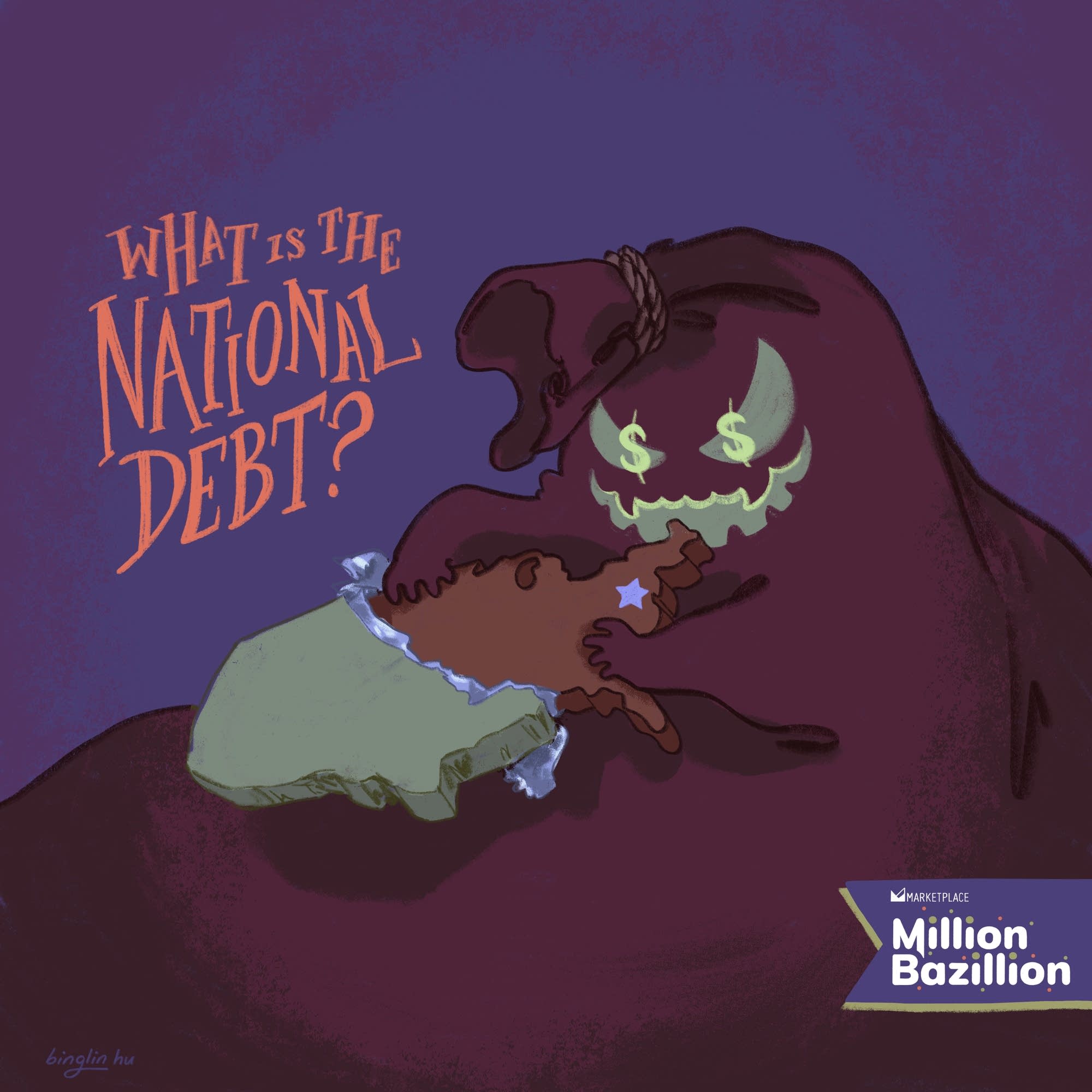
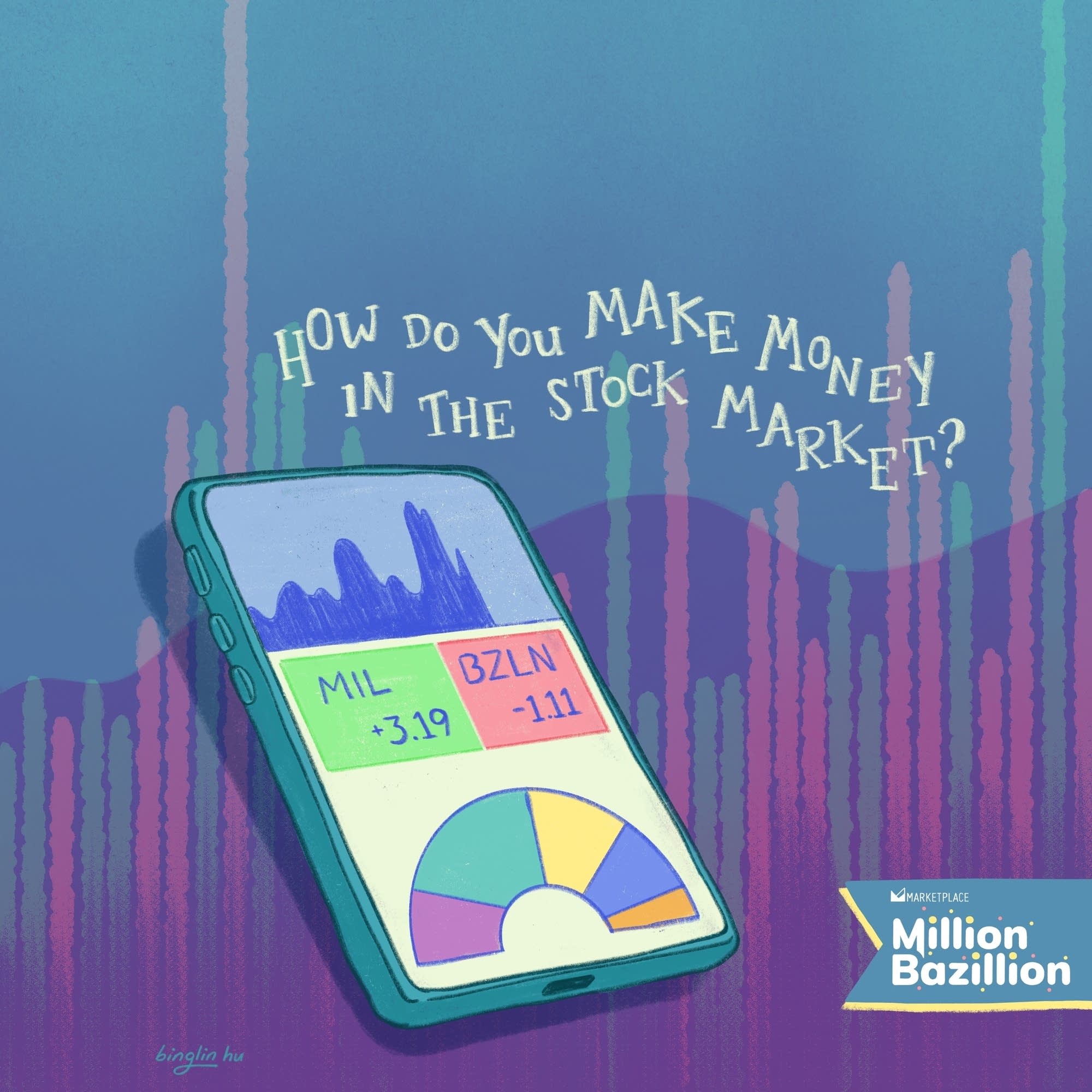

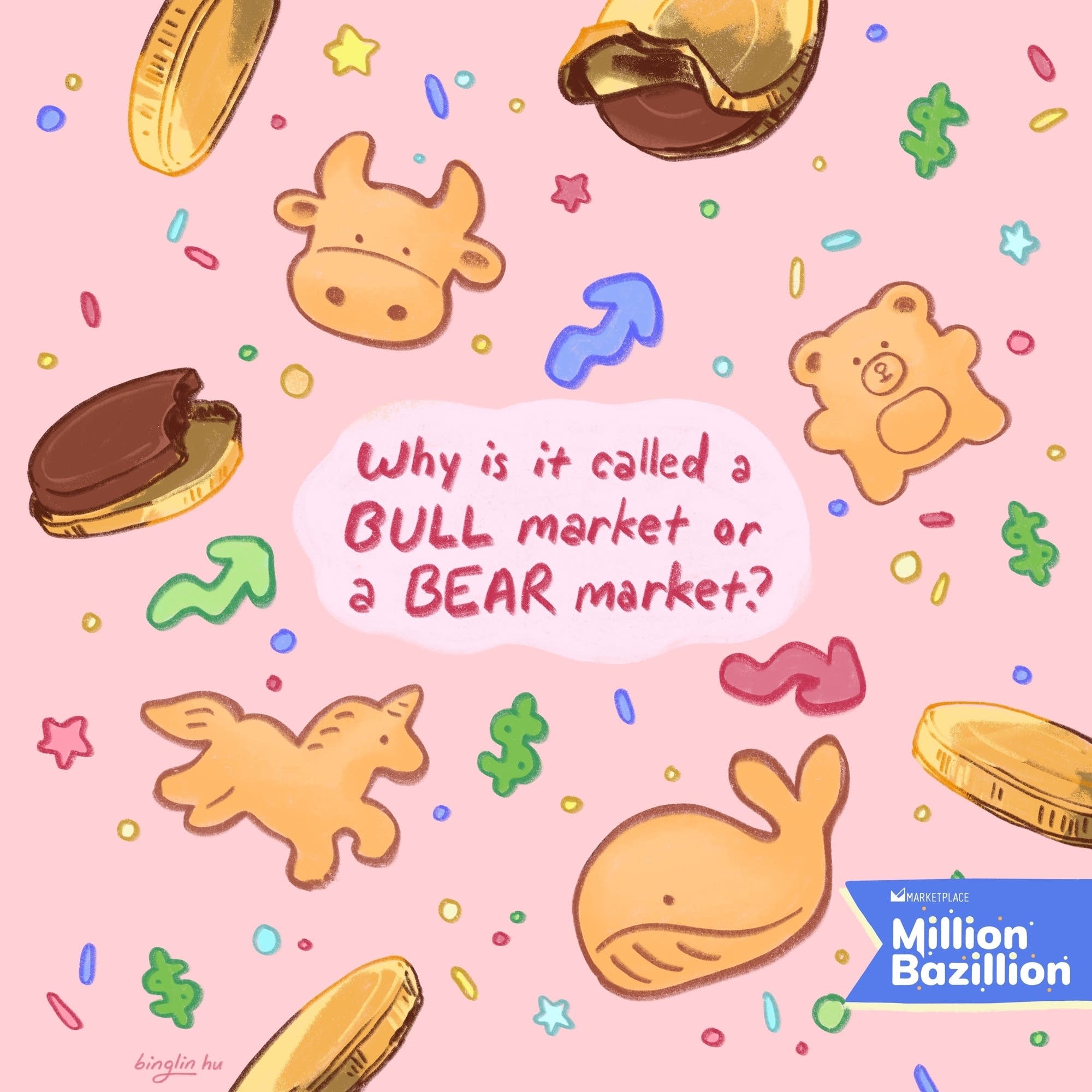
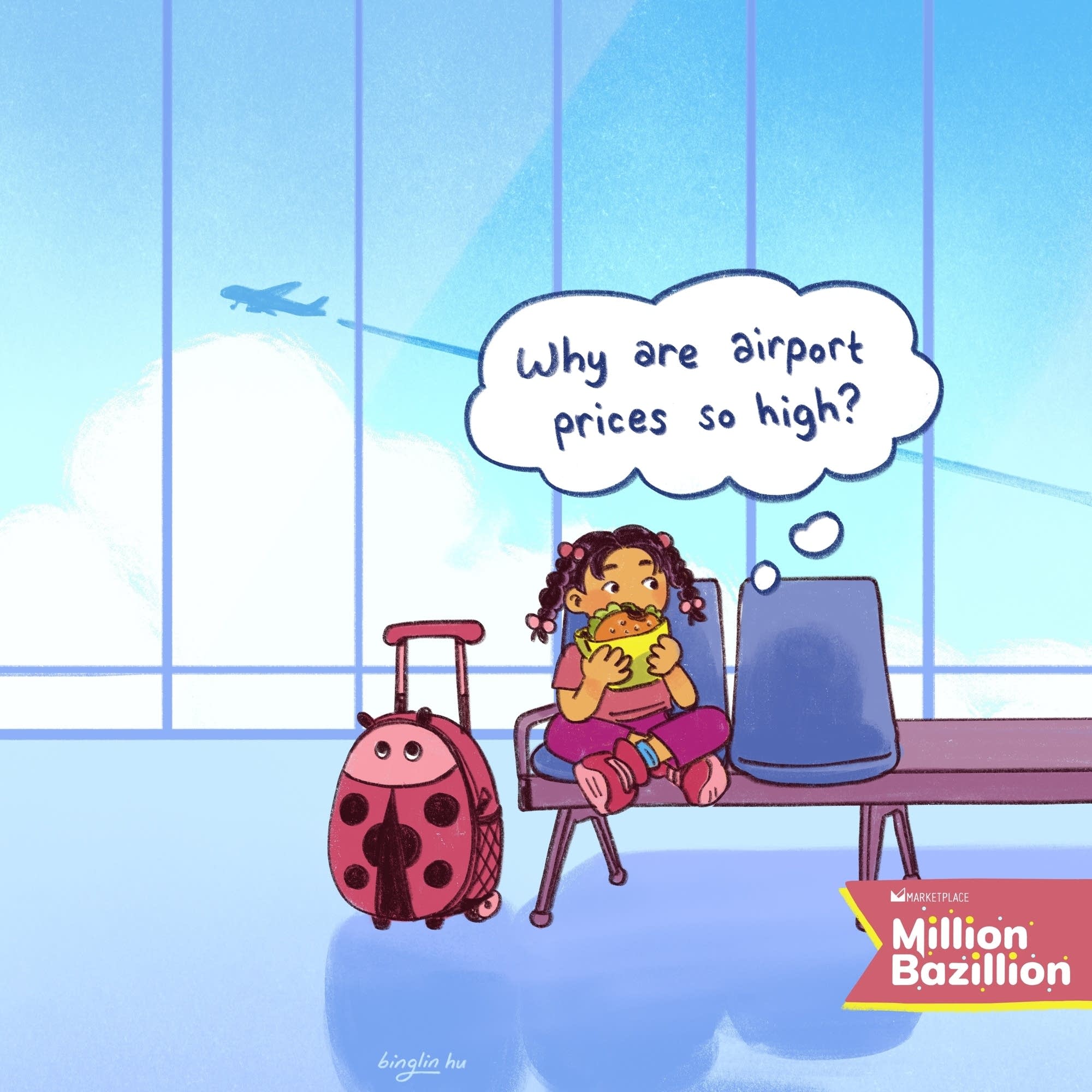
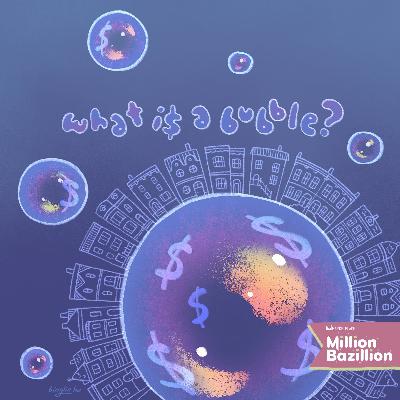
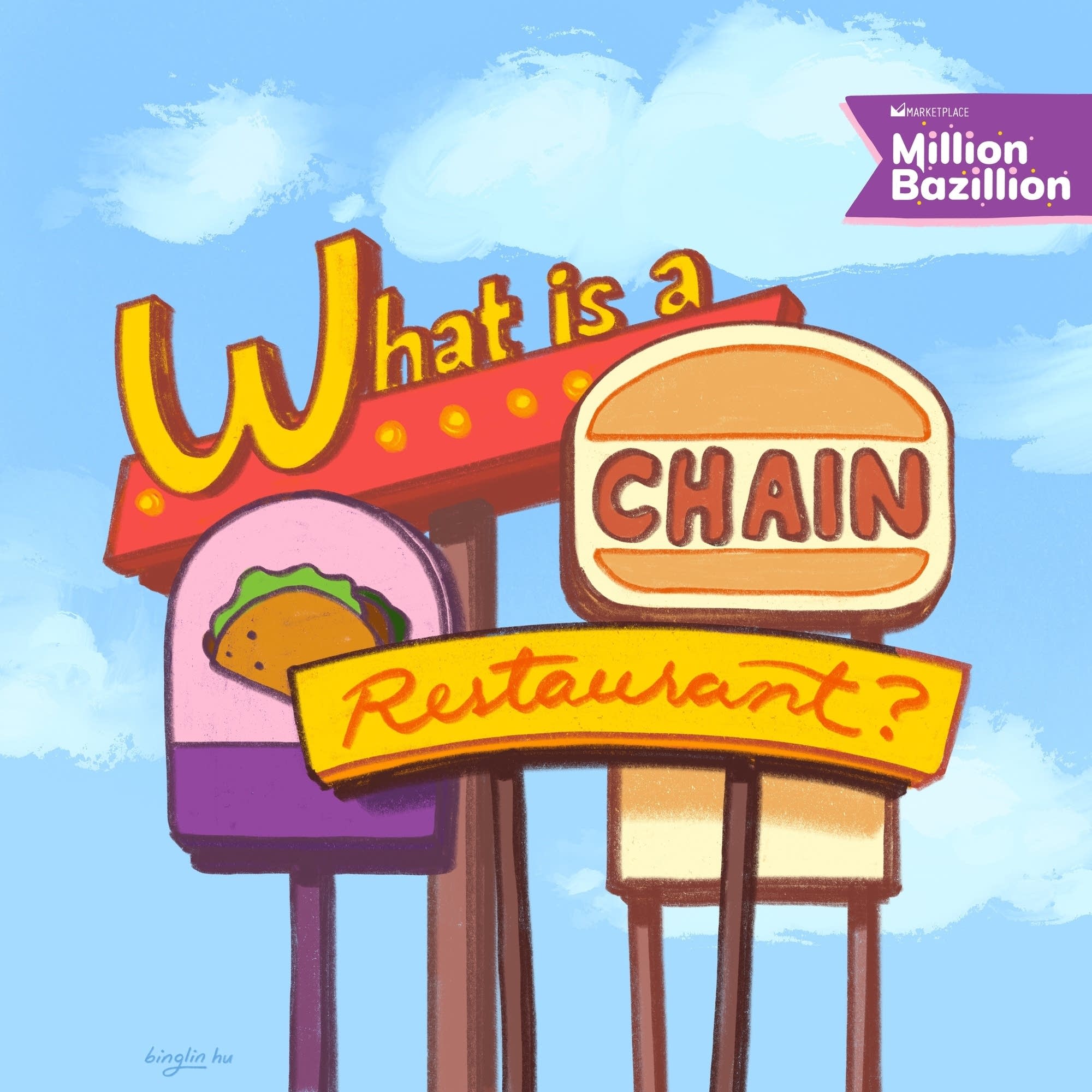

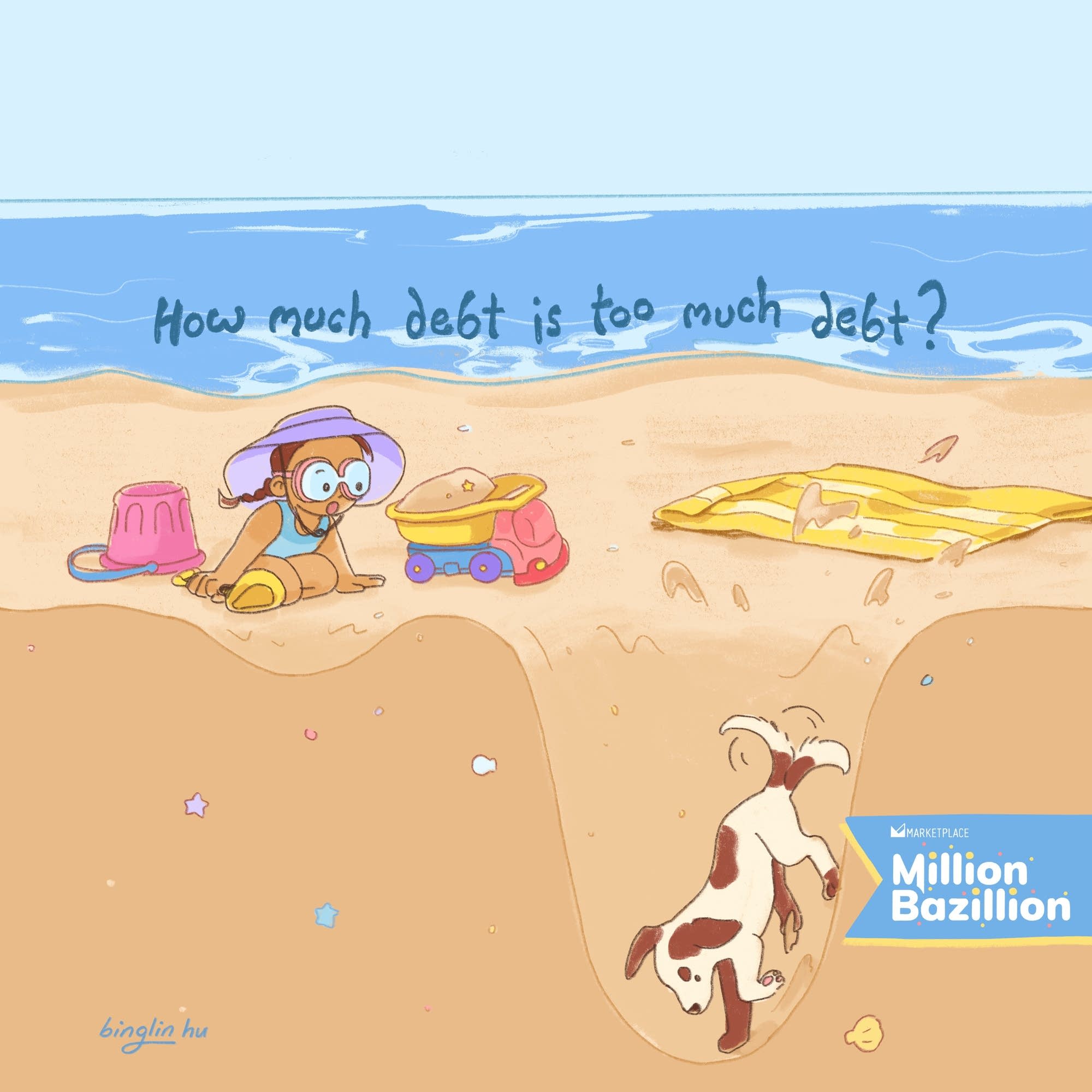

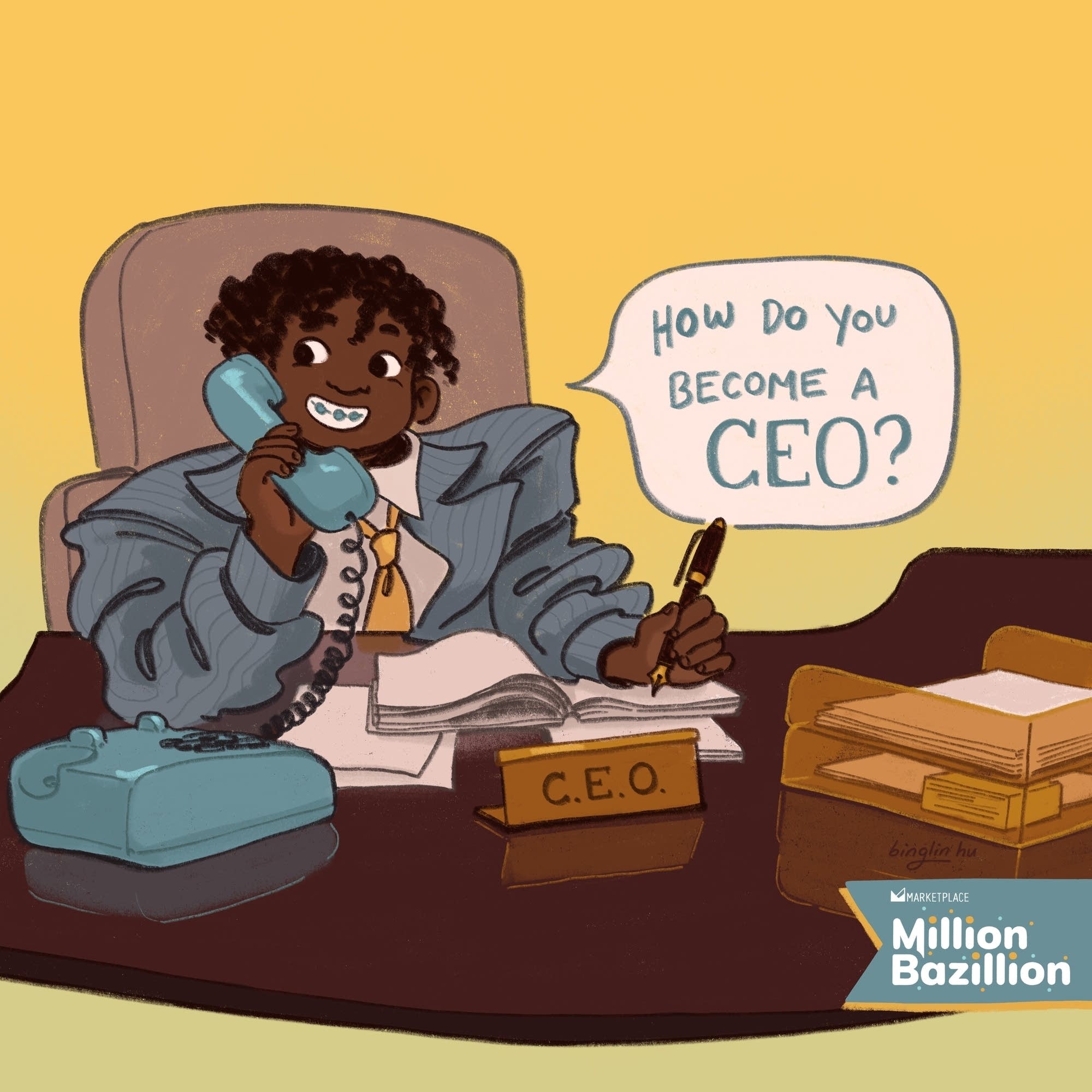
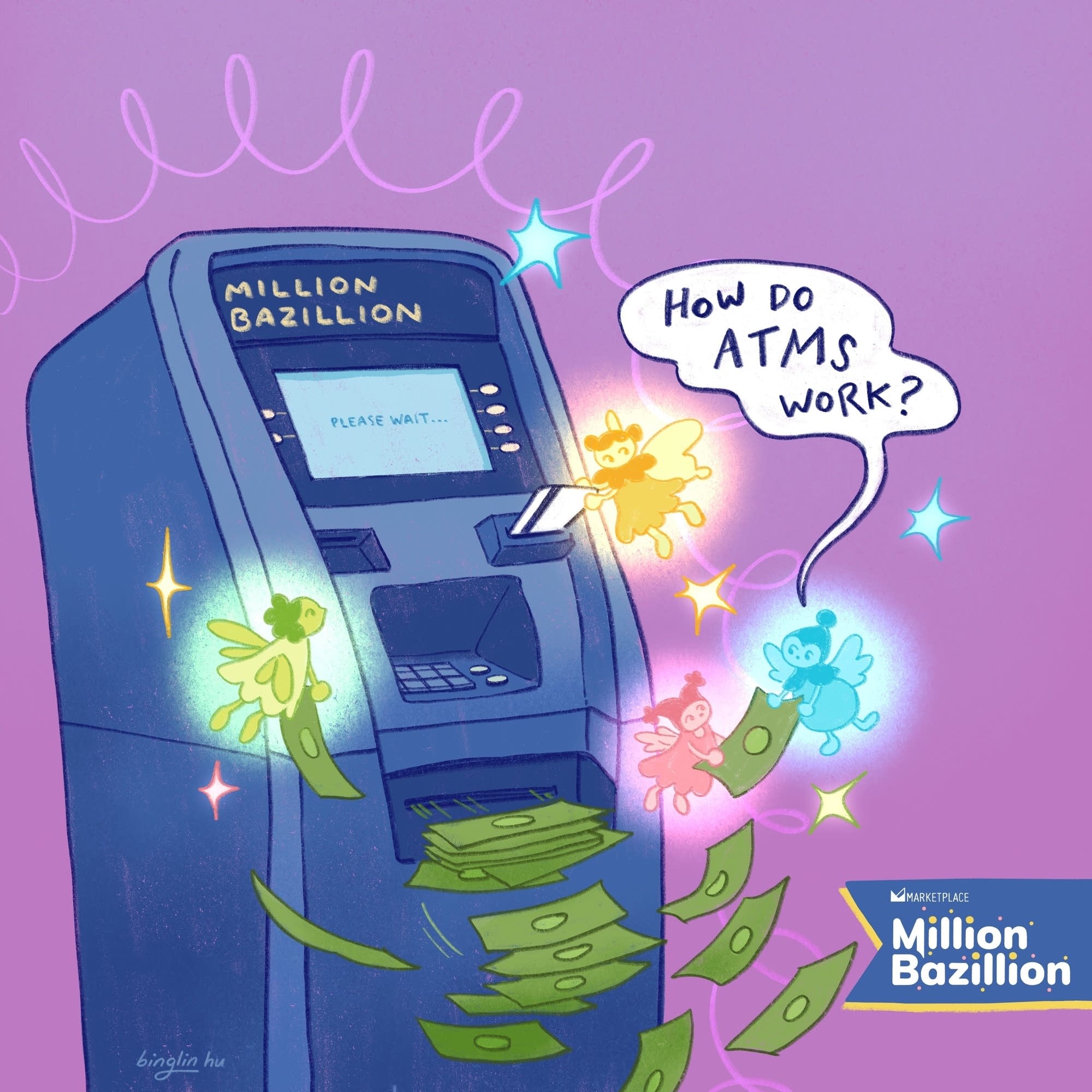
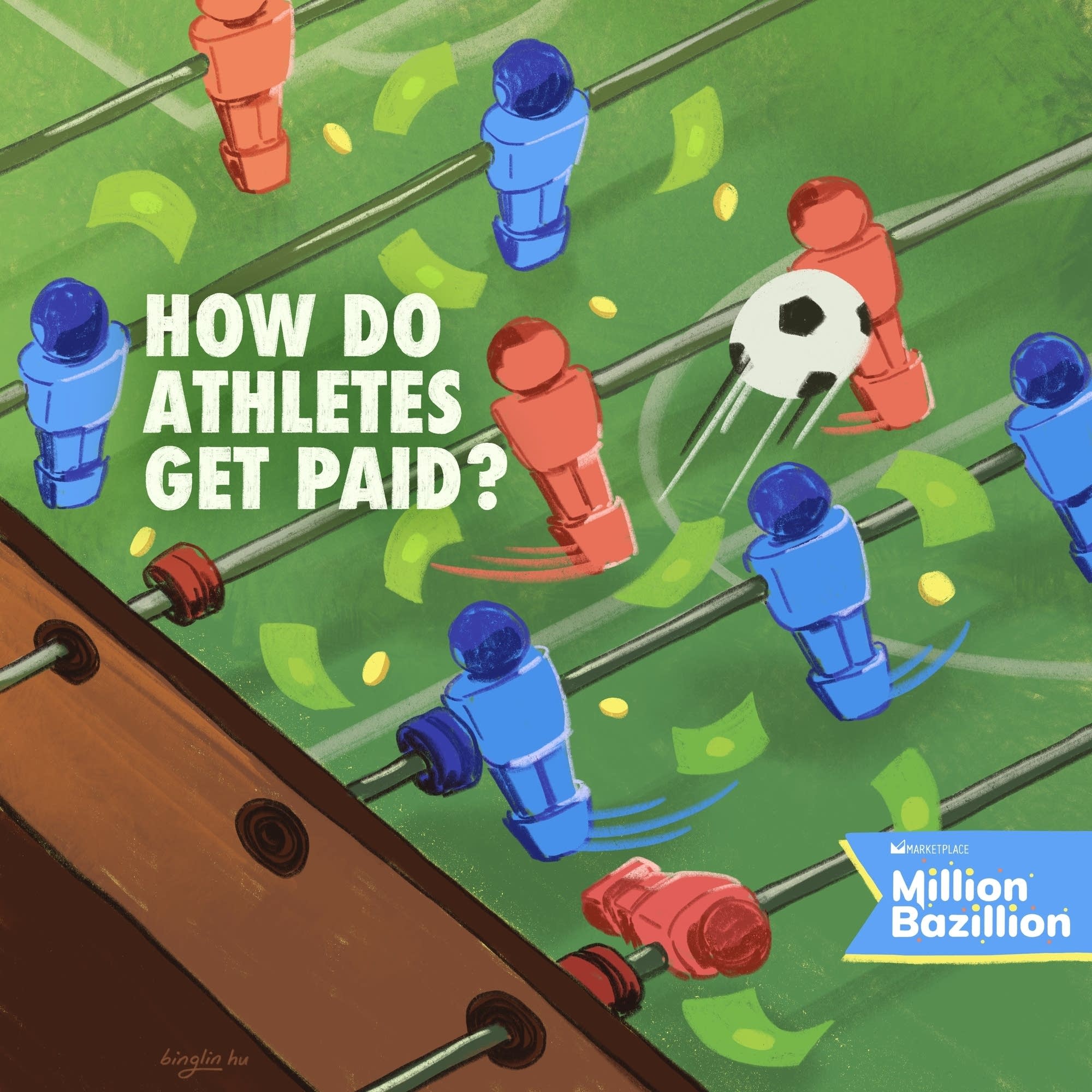
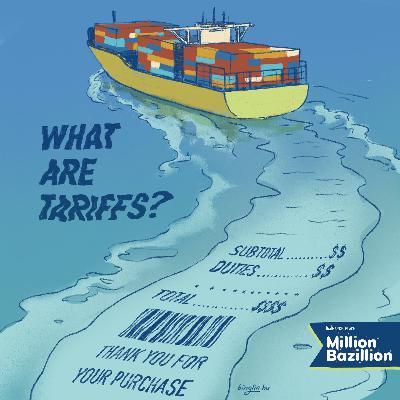




did anyone get to hear the bull market episode early or is it just me
aaaaaaaaaaaaaaaaaaaaaaaaaaaaaaaaaaaa
i love this episode! And plz make more episodes! I keep coming back to my favorite episodes, and this one is one of them.
Why is Fort Knox spelled like that? :) :] :>
brains on should talk about money also not just science,I mean I like science but it might get boring just talking about science.
China is big and they have sooooooooooooooooooooooooooooooooooooooooooooooppp many materials,so that's why sooooooooooo many things are made in china.also digging to the bottom of the earth 🌎 does not lead to china#myth
this is a hilarious episode 🤣 😂 😆 😄!#funny
credit cards are very usefull#lots of money.
this is awesome because they talk about ads,they are soooooooooo anoying.ads are sometimes usefull#ads are crazy!
this is a great episode.they should make an episode about how much gold bars cost#awesome podcast.
yup, that's Michigan fr
Where's jed!?
I wanna work there, if you know what I mean 😏
Meester krebs
this is SUCH a genius show! I needed this.
can't stop listening to this 😅😅😅
😀😄😄🤯🥳🤠🥳
Everything is perfect in this podcas👌🤌
love the song and I mean LLOOVVEE the song 🎵 🎶
LLLOOOLLL🤣😂😂🙂😂🙂